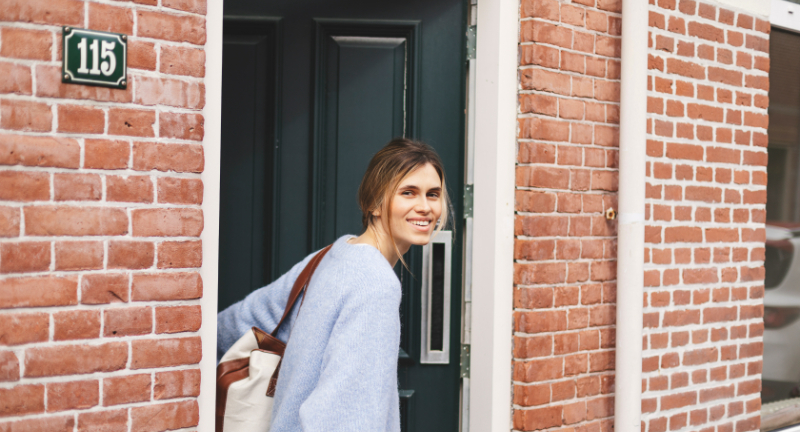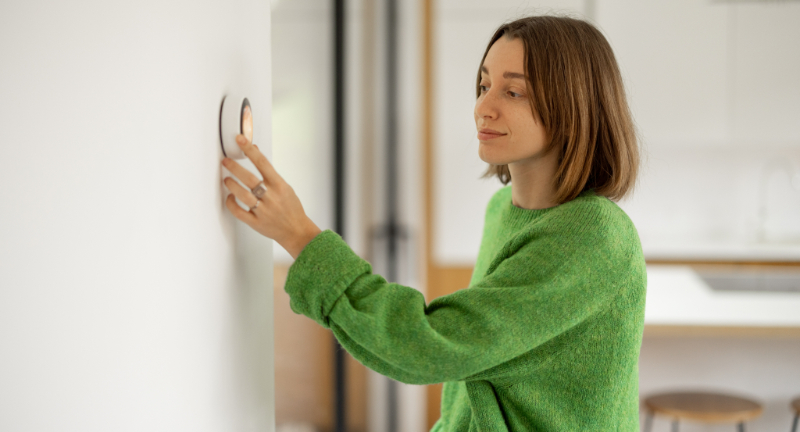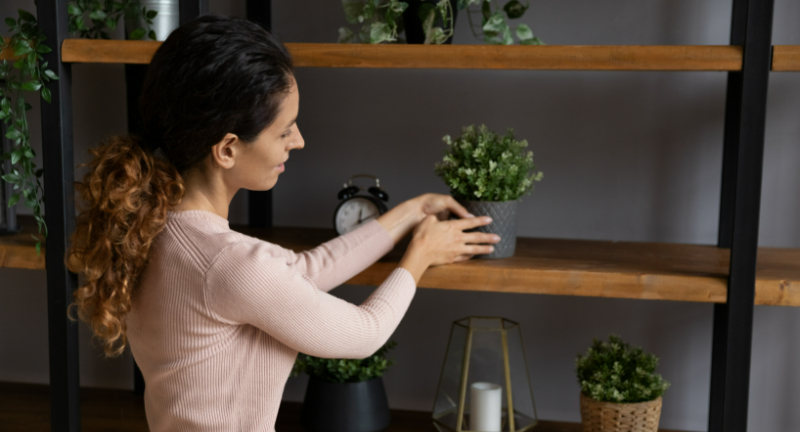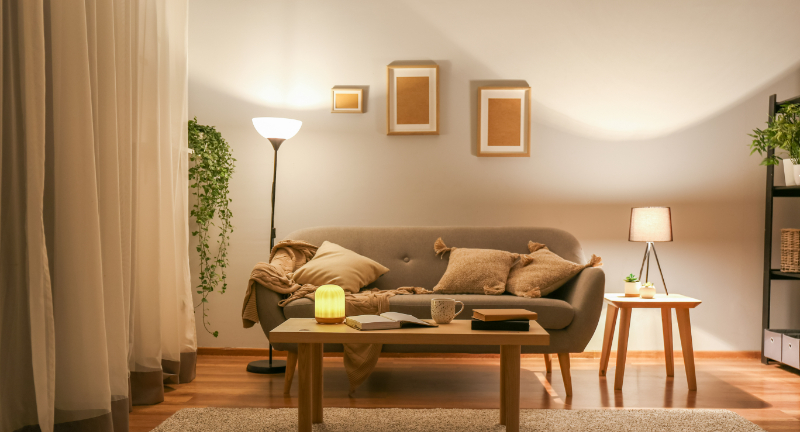
Visiting someone’s home is an opportunity to show respect and appreciation for their hospitality. However, there are certain behaviors that can quickly sour your relationship with your host and leave a lasting negative impression. To navigate the waters of social etiquette smoothly, it’s crucial to be aware of the worst things you can do in someone else’s home. From invading privacy to disrespecting personal belongings, this guide will help you avoid common pitfalls and ensure your visits are always welcomed.
Ignoring House Rules

Shutterstock
Every household has its own set of rules, and ignoring them can make you an unwelcome guest. Whether it’s a request to remove shoes at the door or to keep noise levels down, failing to comply shows a lack of respect for your host’s preferences and lifestyle. It’s essential to inquire about and follow these guidelines to maintain harmony during your stay.
Bringing Uninvited Guests

Shutterstock
Arriving with uninvited guests can put undue strain on your host’s hospitality, potentially causing inconvenience and discomfort. It’s presumptuous to assume additional people are welcome without prior approval. Always discuss any plans to bring others along well in advance of your visit.
Snooping Around

Shutterstock
Privacy is a fundamental aspect of respect between individuals. Snooping around someone’s home, opening drawers, or exploring private spaces without permission is a serious breach of trust. Such behavior can damage your relationship with the host and is considered highly disrespectful.
Overstaying Your Welcome

Shutterstock
Being mindful of the length of your visit is important. Overstaying your welcome can be burdensome to your host, disrupting their routine and personal time. Always clarify how long your visit should be and make arrangements to leave promptly when the time comes.
Leaving a Mess

Shutterstock
Not cleaning up after yourself is one of the quickest ways to ensure you’re not invited back. Whether it’s dishes, clutter, or personal items, leaving a mess shows a lack of consideration for your host’s space. Always offer to help with cleaning and ensure you leave areas as you found them.
Being Glued to Your Phone

Shutterstock
Spending excessive time on your phone while visiting someone’s home can come across as rude and disinterested. It’s important to engage with your host and other guests, showing that you value the time spent together. Limit phone use to necessary communications and focus on being present.
Helping Yourself Without Asking

Shutterstock
Helping yourself to food, drinks, or personal items without permission can make hosts uncomfortable. It’s polite to wait for an invitation to help yourself or to ask if you need something. This respect for boundaries is crucial for a pleasant guest-host relationship.
Disregarding Pet Rules

Shutterstock
If your host has pets, they likely have specific rules about how to interact with them. Ignoring these guidelines can lead to discomfort for the pets and annoyance for your host. Whether it’s about feeding, petting, or letting them out, always follow the host’s instructions.
Smoking Without Permission

Shutterstock
Smoking in someone’s home without permission is a significant faux pas. Many people are sensitive to smoke due to allergies, health concerns, or personal preference. Always step outside to smoke, and better yet, ask where it’s appropriate to do so.
Making a Lot of Noise

Shutterstock
Loud behavior can be disruptive and disrespectful in someone’s home. Whether it’s talking loudly, blasting music, or making noise late at night, such actions can strain your relationship with your host. Be mindful of your volume and the time of day during your visit.
Changing the Thermostat Without Asking

Shutterstock
Adjusting the thermostat without permission is an overstep of boundaries. Temperature preferences can vary greatly, and what’s comfortable for you might not be for your host. Always communicate if you’re too hot or cold instead of taking matters into your own hands.
Leaving the Bathroom a Mess

Shutterstock
Leaving the bathroom messy after use is inconsiderate. From leaving towels on the floor to not flushing properly, such behavior can be unpleasant for your host to deal with. Always leave the bathroom as clean as—or cleaner than—you found it.
Eating Outside Designated Areas

Shutterstock
Eating in areas of the house that are not meant for dining can lead to spills and stains, causing unnecessary cleaning for your host. Stick to designated dining areas and ask if you’re unsure where it’s appropriate to have your meal or snack.
Disrespecting Family Time

Shutterstock
Intruding on moments that are reserved for family can be seen as inconsiderate. Be mindful of your host’s family dynamics and schedules, and ensure you’re not imposing during times that are meant for family bonding.
Not Respecting Quiet Hours

Shutterstock
Many households have quiet hours, especially in the evenings or mornings. Disregarding these times by being
noisy can disrupt sleep and daily routines, showing a lack of consideration for your host and their family. Always ask about and respect the household’s quiet hours to maintain a peaceful environment.
Rearranging Furniture or Decor

Shutterstock
Moving furniture or altering the decor without permission can be seen as overstepping your boundaries as a guest. These are personal choices made by the host to create a comfortable and inviting space. If you need something adjusted for your comfort, it’s best to discuss it rather than taking action yourself.
Wasting Resources

Shutterstock
Being wasteful of resources like water, electricity, or food not only shows a lack of respect for your host but also for the environment. Turn off lights when you leave a room, be mindful of water usage, and don’t take more food than you can eat. These small actions demonstrate your respect for your host’s home and resources.
Forgetting to Say Thank You

Shutterstock
Perhaps the most crucial, yet often overlooked, aspect of being a good guest is expressing gratitude. Failing to thank your host for their hospitality can leave a lasting negative impression. A simple thank you goes a long way in showing appreciation for the time, effort, and resources your host has offered you.
Ignoring Guest Limitations

Shutterstock
Exceeding guest limitations, such as staying beyond the number of days agreed upon or bringing pets when it’s not allowed, can create discomfort and strain on your host’s hospitality. Always discuss and respect any limitations set before your visit to avoid putting your host in a difficult position.
Using Items Reserved for Personal Use

Shutterstock
Using items that are clearly personal or reserved for the host’s use—such as special toiletries, clothes, or even designated food items—without permission is a breach of privacy and trust. It’s essential to respect the personal belongings of your host and ask before using anything that might not be meant for guests.
Not Offering to Contribute

Shutterstock
While it’s not always expected, not offering to contribute in some way—be it helping with chores, bringing a gift, or offering to cover some costs—can sometimes be perceived as taking advantage of your host’s generosity. A gesture of willingness to contribute shows appreciation for their hospitality and can help balance the dynamic of the guest-host relationship, making your stay more harmonious and enjoyable.
Conclusion

Shutterstock
Visiting someone else’s home is a privilege that comes with the responsibility to be a considerate and respectful guest. By avoiding these worst behaviors, you can ensure that your presence is a positive and welcomed one. Remembering to show appreciation, respect privacy and boundaries, and contribute to a pleasant environment will not only make your visits more enjoyable but also strengthen your relationships with your hosts. After all, the foundation of good etiquette is mutual respect and kindness.

















































